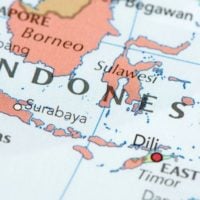The African Women’s Development Fund (AWDF) is a pioneering initiative that aims to support the empowerment of women across the African continent. Established in 2000, AWDF has become a vital resource for women-led organizations and initiatives that focus on advocacy, development, and social change. The fund recognizes that women are at the forefront of driving progress in their communities, yet they often face systemic barriers that hinder their efforts.
By providing financial support, AWDF enables these organizations to implement projects that address critical issues such as gender-based violence, economic empowerment, and political participation. AWDF grants are designed to be flexible and responsive to the unique needs of women-led initiatives. The fund prioritizes projects that demonstrate a clear commitment to advancing women’s rights and fostering gender equality.
This approach not only empowers individual organizations but also contributes to the broader movement for women’s rights across Africa. As the landscape of funding continues to evolve, AWDF remains committed to ensuring that women’s voices are amplified and that their contributions to society are recognized and valued.
The Impact of AWDF Grants on Women-Led Advocacy and Development
Empowering Women through Grassroots Advocacy
Organizations that receive AWDF grants often engage in grassroots advocacy, mobilizing women to participate in local governance and decision-making processes. This not only empowers women but also fosters a sense of ownership over their communities’ development.
Tackling Pressing Social Issues
AWDF grants have been instrumental in addressing pressing social issues such as gender-based violence and economic inequality. By supporting projects that focus on education, health, and economic empowerment, AWDF enables women to break the cycle of poverty and dependency.
Creating a Ripple Effect of Empowerment
For example, a project funded by AWDF in Ghana provided vocational training for women, equipping them with skills to start their own businesses. This not only improved their economic status but also inspired other women in the community to pursue similar paths, creating a ripple effect of empowerment.
Success Stories: How AWDF Grants Have Empowered Women
The success stories emerging from AWDF-funded projects are a testament to the fund’s impact on women’s empowerment across Africa. One notable example is the work of the Women’s Rights Initiative in Uganda, which received an AWDF grant to implement a project aimed at combating domestic violence. Through community workshops and awareness campaigns, the initiative educated both men and women about the legal rights of women and the importance of healthy relationships.
As a result, there was a significant increase in reported cases of domestic violence being addressed by local authorities, showcasing a shift in societal attitudes towards gender-based violence. Another inspiring story comes from a cooperative of women farmers in Malawi who received funding from AWDF to enhance their agricultural practices. With the grant, they were able to access better seeds, training on sustainable farming techniques, and market linkages for their produce.
The cooperative not only improved their crop yields but also increased their bargaining power in local markets. This success led to greater financial independence for the women involved, allowing them to invest in their children’s education and healthcare. Such stories highlight how AWDF grants can lead to tangible improvements in women’s lives and contribute to broader societal change.
The Application Process for AWDF Grants
Navigating the application process for AWDF grants can be a daunting task for many organizations, especially those that are new to grant writing. However, understanding the key components of a successful proposal can significantly enhance an organization’s chances of securing funding. The first step is to thoroughly review the eligibility criteria outlined by AWDF.
Organizations must demonstrate a clear commitment to women’s rights and have a well-defined project that aligns with AWDF’s strategic priorities. Once eligibility is confirmed, organizations should focus on crafting a compelling narrative that outlines the project’s objectives, target beneficiaries, and expected outcomes. It is essential to provide evidence of the need for the project through data and testimonials from the community.
Additionally, including a detailed budget that clearly outlines how funds will be allocated can strengthen the proposal. Organizations are encouraged to seek feedback from peers or mentors who have experience with grant writing before submitting their applications. This collaborative approach can help identify potential weaknesses in the proposal and enhance its overall quality.
Challenges and Opportunities for Women Applying for AWDF Grants
While AWDF grants present significant opportunities for women-led organizations, there are also challenges that applicants may face during the process. One common hurdle is limited access to information about grant opportunities and application procedures. Many grassroots organizations operate in remote areas where resources are scarce, making it difficult for them to stay informed about available funding options.
To address this challenge, it is crucial for organizations to build networks with other NGOs and participate in workshops or training sessions focused on grant writing and fundraising strategies. Another challenge is the competitive nature of grant applications. With numerous organizations vying for limited funding, it is essential for applicants to differentiate themselves by showcasing their unique approaches and proven track records.
This can be achieved by highlighting past successes and demonstrating how their proposed project aligns with AWDF’s mission. Additionally, organizations should consider collaborating with other groups or forming coalitions to strengthen their proposals and increase their chances of success.
The Future of AWDF Grants: Supporting the Continued Growth of Women-Led Initiatives
Looking ahead, the future of AWDF grants appears promising as the fund continues to adapt to the evolving needs of women-led initiatives across Africa. As awareness of gender issues grows globally, there is an increasing recognition of the importance of investing in women’s empowerment as a means of achieving sustainable development. AWDF is well-positioned to leverage this momentum by expanding its funding opportunities and exploring innovative approaches to support women-led organizations.
One potential avenue for growth is the incorporation of technology into grant-making processes. By utilizing digital platforms for application submissions and project monitoring, AWDF can streamline operations and reach a broader audience of potential applicants. Additionally, providing capacity-building resources such as training programs on financial management and project implementation can further empower grantees to maximize the impact of their funding.
In conclusion, AWDF grants play a crucial role in advancing women’s rights and fostering gender equality across Africa. By supporting women-led initiatives, AWDF not only empowers individual organizations but also contributes to systemic change within communities. As we look towards the future, it is essential for stakeholders to continue advocating for increased funding and support for women’s initiatives, ensuring that the voices of women are heard and valued in all aspects of society.









































